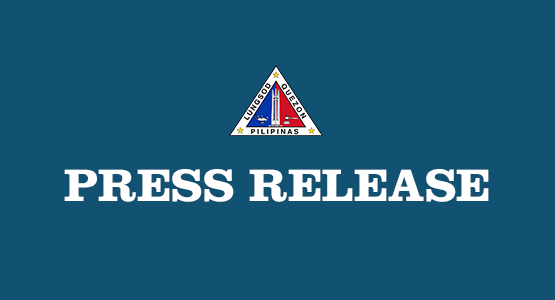
Following the detection of the first Monkeypox case in the Philippines on Friday, the Quezon City Government laid down measures in preparation for the possible detection of the virus in the city.
The Quezon City Health Department (QCHD) has developed a response mechanism in dealing with Monkeypox pertaining to prevention; early detection; management and isolation of a suspected, probable, and confirmed case; and contact tracing.
“We have been closely coordinating with the Department of Health (DOH) since May, when they reported an uptick of Monkeypox cases in other countries. The QCHD is also providing us with weekly updates about the virus to make sure that we are ready to deal with it effectively,” Mayor Joy Belmonte said.
Doctors, nurses, and medical personnel from public and private hospitals and health centers recently underwent an orientation on DOH Memorandum 2022-0220 (Interim Technical Guidelines for Implementation of Monkeypox Surveillance, Screening, Management, and Infection 160Z). They were taught the necessary information about the virus, especially how to prevent its transmission to an individual, household, and community.
Social hygiene, and sundown clinics, as well as MSM community organizations, were also informed and oriented on Monkeypox case definitions, management, and infection control.
To raise public awareness about the virus, the city’s Public Affairs and Information Services Department (PAISD) is posting artcards and information materials on what Monkeypox is, how it is transmitted, what are its symptoms, and how to avoid it.
Protocols for detection, specimen collection, sending of the specimen to Research Institute for Tropical Medicine (RITM), and transporting suspected cases to referral hospitals were also established.
Moreover, all city government-owned hospitals – the Quezon City General Hospital, Rosario Maclang Bautista General Hospital, and Novaliches District Hospital – have already designated isolation rooms for suspected, probable, and confirmed cases of Monkeypox.
The Quezon City Epidemiology Surveillance Unit (QCESU) also organized a Quick Response Team for Monkeypox contact tracing response. They also ensured that personal protective equipment and other logistical needs for contact tracing are sufficient.
“Laging nakahanda ang QC sa mga ganitong sitwasyon, mula sa equipment, guidelines, hanggang sa pagbibigay ng kinakailangang kaalaman sa ating mga health worker tungkol sa virus. Gagawin natin ang lahat para hindi makapasok ang Monkeypox sa lungsod at maiwasan ang pagkalat nito sa mga komunidad,” Belmonte added.
QCHD also advised QCitizens to consistently adhere to the health protocols set by the DOH against COVID-19, as Monkeypox can also be transmitted to a person through close or direct contact (wounds, body fluids, respiratory droplets).
###







